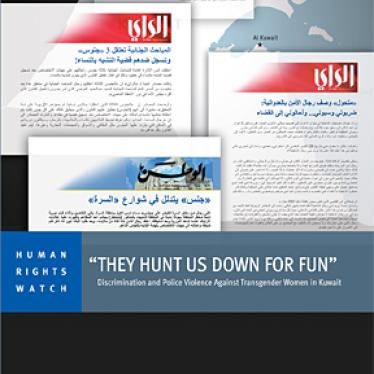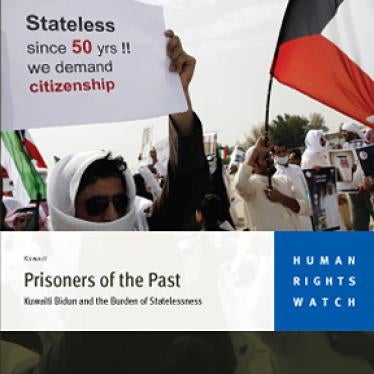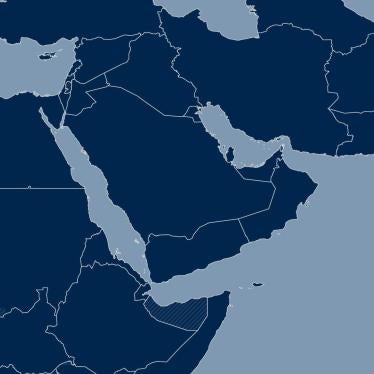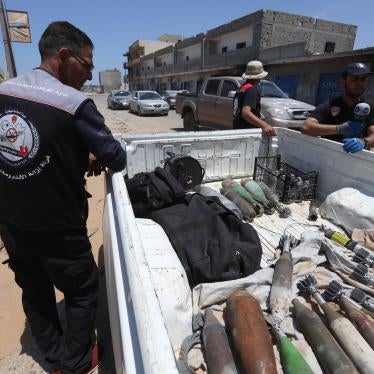Middle East and North Africa: End Curbs on Women’s Mobility
Male Guardianship Rules Hamper Travel, Other Movement

Kuwaiti authorities continue to use provisions in the constitution, the national security law, and the country’s cybercrime law to restrict free speech and prosecute dissidents, particularly focusing on comments made on social media. Kuwait is falling behind on reforming its kafala (sponsorship) system, which leaves migrant workers vulnerable to abuse and forced labor. The Bidun, a community of stateless people who claim Kuwaiti nationality, remain in legal limbo while the government resorts to coercion and penalizes peaceful community activism.


Male Guardianship Rules Hamper Travel, Other Movement

Discrimination and Police Violence Against Transgender Women in Kuwait


Abuse of Migrant Domestic Workers through Kuwait’s Sponsorship System

60th session UN Human Rights Council



49th Session of the UN Universal Periodic Review
Use International Migrants Day to End Mistreatment of Essential Workers

Male Guardianship Rules Hamper Travel, Other Movement

Agreement Without Improvement Could Harm Workers

